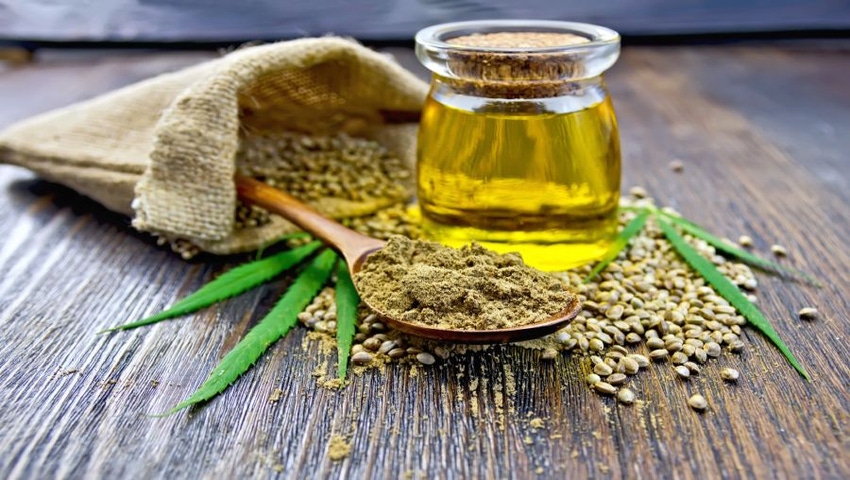Sen. Majority Leader Mitch McConnell (R-Kentucky) is expected to urge inclusion of the Hemp Farming Act in a final farm bill. The hemp legislation would legalize the crop as an agricultural commodity, removing it from the federal list of controlled substances.

The U.S. Senate on Thursday passed a farm bill that includes a measure to legalize hemp, a watershed event for an industry that has fought for many years to distinguish hemp from its cousin, marijuana.
A version of the farm bill passed by the U.S. House of Representatives doesn’t incorporate hemp language. But Sen. Majority Leader Mitch McConnell (R-Kentucky) is expected to urge inclusion of the Hemp Farming Act in a final farm bill.
A conference committee, comprised of members from the House and Senate, must reconcile different versions of the farm bill.
“For far too long, the federal government has prevented most farmers from growing hemp,” McConnell said in a June 28 news release. “Although it was a foundational part of Kentucky’s heritage and today you can buy hemp products at stores across the country, most American farmers have been barred from planting it in their fields.”
The Hemp Farming Act would legalize the crop as an agricultural commodity, removing it from the federal list of controlled substances.
The hemp industry has blamed the Drug Enforcement Administration (DEA) for causing disruptions to businesses growing, cultivating and marketing hemp under state industrial hemp pilot programs authorized under Section 7606 of the Agricultural Act of 2014, otherwise known as the farm bill.
The scope of the 2014 farm bill has been debated, including whether it, in fact, authorized the marketing of hemp products in interstate commerce, like CBD-containing dietary supplements and foods.
Actions taken by DEA—including its 2016 adoption of a new drug code for “marihuana extract”—fueled debate and litigation over whether the agency has overstepped its bounds, or is properly regulating cannabis-based compounds subject to the Controlled Substances Act.
Several sources lobbying for passage of the Hemp Farming Act said the bill would clearly convey DEA has no authority over hemp, which is broadly defined in the legislation to encompass things like cannabinoids, derivatives and extracts.
“It would take DEA out of the picture,” Jonathan Miller, general counsel to the U.S. Hemp Roundtable, said in an interview in March. “For any hemp crops or products that are less than .3 percent THC [delta-9 tetrahydrocannabinol], they would no longer be subject to the Controlled Substances Act or the involvement of the Drug Enforcement Administration.”
States also would have the chance to primarily oversee hemp production. Also, hemp farmers would be eligible to apply for crop insurance, and hemp researchers could apply for competitive federal grants from USDA.
According to Vote Hemp, a grassroots advocacy group, 39 states have lifted restrictions on hemp farming and may license farmers to grow hemp based on the 2014 farm bill. In the United States in 2017, the total retail value of hemp products was at least $820 million, Vote Hemp divulged in a June 28 press release, citing as its source Hemp Business Journal. Hemp food, supplements and body care products in the United States comprised $553 million in sales, while hemp-derived CBD products alone were said to be worth 23 percent of the market, or $190 million, the release said.
“As the U.S. hemp market continues to grow at a double-digit pace annually, American consumers continue to demonstrate their strong interest in hemp products,” Vote Hemp President Eric Steenstra said in the release. “We expect the rate of growth of the market to increase, as Congress has indicated its intention to finally lift federal prohibition on industrial hemp farming.”
About the Author(s)
You May Also Like






.png?width=800&auto=webp&quality=80&disable=upscale)